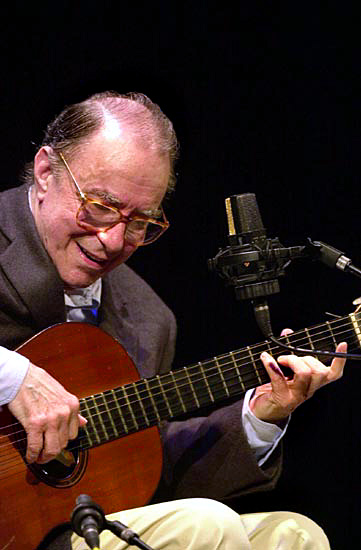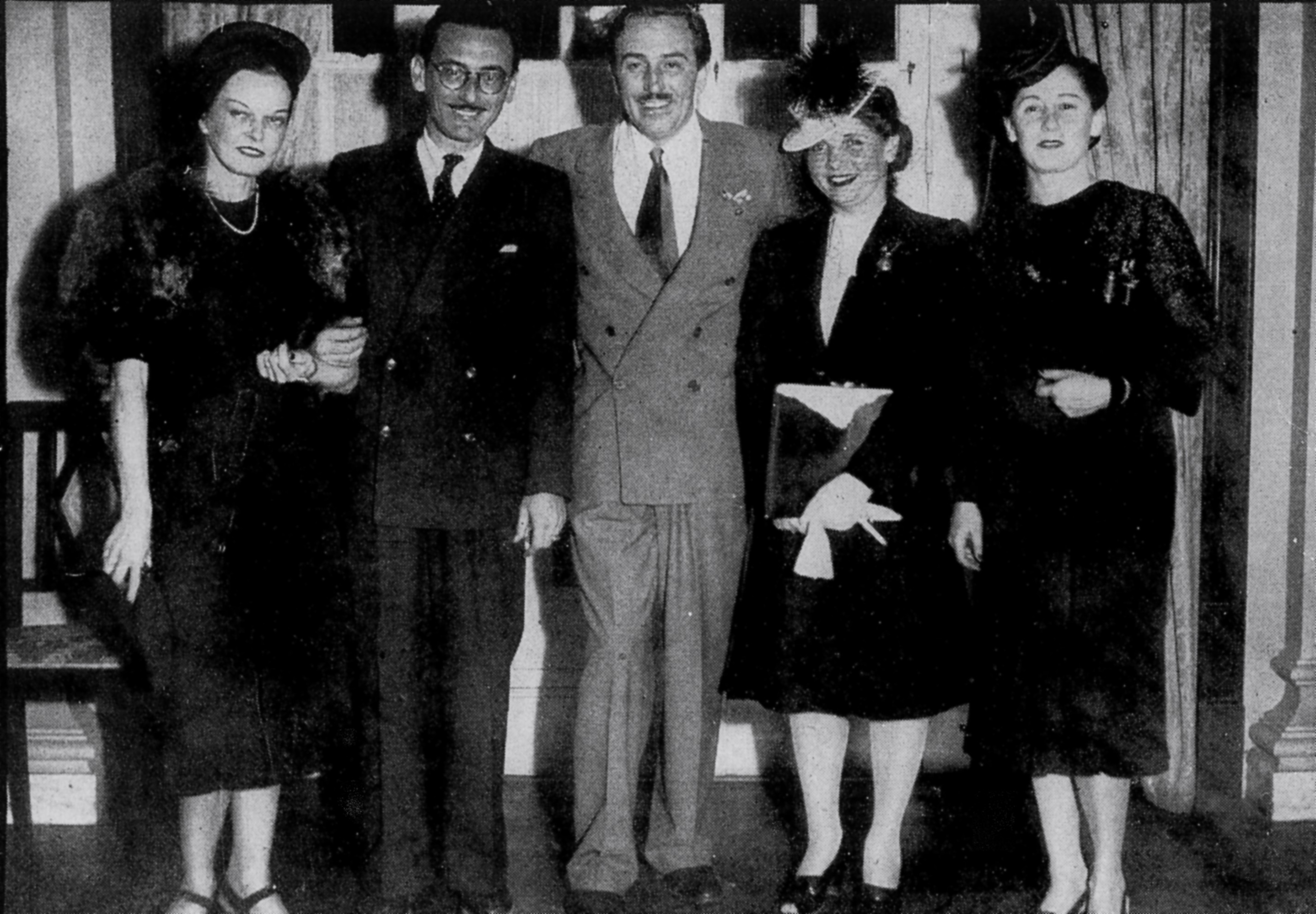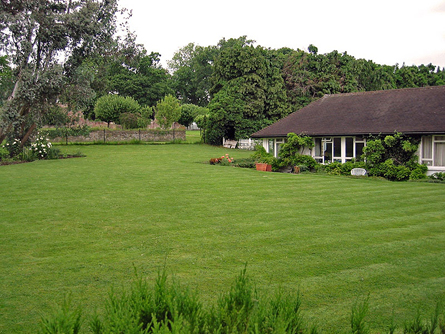|
João Gilberto (album)
''João Gilberto'' is a bossa nova album by João Gilberto, originally released in Brazil as a vinyl LP in 1973 and reissued on CD in 1988. João Gilberto released another album named ''João Gilberto'' in 1961, as well as several EPs with only his name as title. The minimal instrumentation – just Gilberto's guitar and voice, plus Sonny Carr's very sparse percussion – and the relentless beat give the album a hypnotic feel. The album's sound engineer was famous electronic music pioneer Wendy Carlos. This album is often referred to as João Gilberto's "white album", in a reference to The Beatles' ''White Album''. It was listed by ''Rolling Stone ''Rolling Stone'' is an American monthly magazine that focuses on music, politics, and popular culture. It was founded in San Francisco, San Francisco, California, in 1967 by Jann Wenner, and the music critic Ralph J. Gleason. It was first kno ...'' Brazil as 47th of the 100 best Brazilian albums in history. Track listing ... [...More Info...] [...Related Items...] OR: [Wikipedia] [Google] [Baidu] |
João Gilberto
João Gilberto (born João Gilberto Prado Pereira de Oliveira – ; 10 June 1931 – 6 July 2019) was a Brazilian guitarist, singer and composer who was a pioneer of the musical genre of bossa nova in the late 1950s. Around the world, he was often called "father of bossa nova"; in his native Brazil, he was referred to as ''"O Mito"'' ("The Legend"). Early life João Gilberto was born in Juazeiro, Bahia, the son of Joviniano Domingos de Oliveira, a wealthy merchant, and Martinha do Prado Pereira de Oliveira. He lived in his native city until 1942, when he began to study in Aracaju, Sergipe, returning to Juazeiro in 1946. At the age of 14, Gilberto got his first guitar from his grandfather despite disapproval from Gilberto's father. Still in Juazeiro, he formed his first band, called "Enamorados do Ritmo". Gilberto moved to Salvador, Bahia, in 1947. During his three years in the city, he dropped out of his studies to dedicate himself exclusively to music and at the age of 18 b ... [...More Info...] [...Related Items...] OR: [Wikipedia] [Google] [Baidu] |
Wendy Carlos
Wendy Carlos (born Walter Carlos, November 14, 1939) is an American musician and composer best known for her electronic music and film scores. Born and raised in Rhode Island, Carlos studied physics and music at Brown University before moving to New York City in 1962 to study music composition at Columbia University. Studying and working with various electronic musicians and technicians at the city's Columbia-Princeton Electronic Music Center, she helped in the development of the Moog synthesizer, Robert Moog's first commercially available keyboard instrument. Carlos came to prominence with ''Switched-On Bach'' (1968), an album of music by Johann Sebastian Bach performed on a Moog synthesizer, which helped popularize its use in the 1970s and won her three Grammy Awards. Its commercial success led to several more albums, including further synthesized classical music adaptations, and experimental and ambient music. She composed the score to two Stanley Kubrick films – ''A Cloc ... [...More Info...] [...Related Items...] OR: [Wikipedia] [Google] [Baidu] |
Miúcha
Heloísa Maria Buarque de Hollanda (30 November 1937 – 27 December 2018), whose artistic name was Miúcha, was a Brazilian singer and composer. Life and career Heloisa Maria Buarque de Hollanda was born in Rio de Janeiro. She was the daughter of historian Sérgio Buarque de Holanda and Maria Amélia Cesário Alvim; she had a brother, singer and composer Chico Buarque and two sisters, the singers Ana de Hollanda and . When she was 8 years old her family moved to São Paulo. As a child she formed a vocal ensemble with her siblings, including Chico Buarque. In 1960 she moved to Paris where she studied Art History at the École du Louvre. In 1975, she recorded professionally for the first time singing on the album ''The Best of Two Worlds'' in partnership with João Gilberto and Stan Getz. After this release, Miúcha partnered with Tom Jobim on two albums, 1977 and 1979, and was part of the show organized by Aloysio de Oliveira along with Vinicius de Moraes, Tom Jobim and Toquinh ... [...More Info...] [...Related Items...] OR: [Wikipedia] [Google] [Baidu] |
Herivelto Martins
Herivelto de Oliveira Martins (also Herivelto Martins) (Engenheiro Paulo de Frontin, Brazil, January 30, 1912 – Rio de Janeiro, September 17, 1992) was a Brazilian composer, singer, and music player. Martins was the author of many classic Brazilian songs, especially sambas. They include: * Da cor do meu violão * Ave Maria no Morro * Praça onze * Que rei sou eu? Martins formed the Trio de Ouro group in 1936 with Nilo Chagas and his wife, Dalva de Oliveira. Martin's son, Pery Ribeiro, became a highly successful singer of Bossa Nova, and Música popular brasileira and Jazz Jazz is a music genre that originated in the African-American communities of New Orleans, Louisiana in the late 19th and early 20th centuries, with its roots in blues and ragtime. Since the 1920s Jazz Age, it has been recognized as a m .... Selected filmography * '' Berlin to the Samba Beat'' (1944) External links Martin's Biography at Cliquemusic 1912 births 1992 deaths Brazili ... [...More Info...] [...Related Items...] OR: [Wikipedia] [Google] [Baidu] |
Gilberto Gil
Gilberto Passos Gil Moreira (; born 26 June 1942), is a Brazilian singer-songwriter and politician, known for both his musical innovation and political activism. From 2003 to 2008, he served as Brazil's Minister of Culture in the administration of President Luiz Inácio Lula da Silva. Gil's musical style incorporates an eclectic range of influences, including rock, Brazilian genres including samba, African music, and reggae. Gil started to play music as a child and was a teenager when he joined his first band. He began his career as a bossa nova musician and grew to write songs that reflected a focus on political awareness and social activism. He was a key figure in the Música popular brasileira and tropicália movements of the 1960s, alongside artists such as longtime collaborator Caetano Veloso. The Brazilian military regime that took power in 1964 saw both Gil and Veloso as a threat, and the two were held for nine months in 1969 before they were told to leave the country ... [...More Info...] [...Related Items...] OR: [Wikipedia] [Google] [Baidu] |
Haroldo Barbosa
Haroldo Barbosa (March 21, 1915 — September 6, 1979) was a Brazilian comedian, journalist, and composer. Biography He was a childhood friend of Noel Rosa, Almirante, Braguinha, and Aracy de Almeida. During his more than forty years of artistic career, he performed more than three hundred Portuguese versions of foreign songs. He partnered with several composers and wrote plays and scripts for comic programs. Also, he was the creator of the Escolinha do Professor Raimundo. In the 1940s, while working at Rádio Nacional and presenting the program Um Milhão de Melodias, he wrote for newspaper ''A Noite''. His first comic texts also appeared at this time on radio programs such as Cavalcada da Alegria, Radio Tambarra, and Hora dos Amigos do Jazz. He was a composer of several hits such as "Mesa de Bar", "Isso não se Aprende na Escola" and "De Conversa em Conversa". In addition to Rádio Nacional, he also worked at Rádio Tupi, where he wrote several radio soap operas, and at Rádi ... [...More Info...] [...Related Items...] OR: [Wikipedia] [Google] [Baidu] |
Caetano Veloso
Caetano Emanuel Viana Teles Veloso (; born 7 August 1942) is a Brazilian composer, singer, guitarist, writer, and political activist. Veloso first became known for his participation in the Brazilian musical movement Tropicalismo, which encompassed theatre, poetry and music in the 1960s, at the beginning of the Brazilian military dictatorship that took power in 1964. He has remained a constant creative influence and best-selling performing artist and composer ever since. Veloso has won nine Latin Grammy Awards and two Grammy Awards. On November 14, 2012, Veloso was honored as the Latin Recording Academy Person of the Year. Veloso was one of seven children born into the family of José Telles Velloso (commonly known as ''Seu Zeca''), a government official, and Claudionor Viana Telles Veloso (known as ''Dona Canô''). He was born in the city of Santo Amaro da Purificação, in Bahia, a state in the eastern area of Brazil, but moved to Salvador, the state capital, as a college ... [...More Info...] [...Related Items...] OR: [Wikipedia] [Google] [Baidu] |
Ary Barroso
Ary de Resende Barroso (1903–1964), better known as Ary Barroso, was a Brazilian composer, pianist, soccer commentator, and talent-show host on radio and TV. He was one of Brazil's most successful songwriters in the first half of the 20th century. Barroso also composed many songs for Carmen Miranda during her career. Biography Born on November 7, 1903, Ary Barroso was the most influential pre-bossa nova composer in Brazil. Barroso's songs were recorded by a lengthy list of artists including Carmen Miranda and João Gilberto. His 1939 composition ''Aquarela do Brasil'', better known as ''Brazil'', was featured in the 1942 Disney film ''Saludos Amigos'', and has gone on to become one of the 20 most recorded songs of all time. His song ''Na Baixa do Sapateiro'', based on a Brazilian pop tune, was included in the Disney film ''The Three Caballeros'' and popularised as ''Baía''. Barroso's soundtrack for the movie ''Brazil (1944 film), Brazil'' was nominated for an Academy Awards, Os ... [...More Info...] [...Related Items...] OR: [Wikipedia] [Google] [Baidu] |
Tom Jobim
Tom or TOM may refer to: * Tom (given name), a diminutive of Thomas or Tomás or an independent Aramaic given name (and a list of people with the name) Characters * Tom Anderson, a character in ''Beavis and Butt-Head'' * Tom Beck, a character in the 1998 American science-fiction disaster movie '' Deep Impact'' * Tom Buchanan, the main antagonist from the 1925 novel ''The Great Gatsby'' * Tom Cat, a character from the ''Tom and Jerry'' cartoons * Tom Lucitor, a character from the American animated series ''Star vs. the Forces of Evil'' * Tom Natsworthy, from the science fantasy novel ''Mortal Engines'' * Tom Nook, a character in ''Animal Crossing'' video game series * Tom Servo, a robot character from the ''Mystery Science Theater 3000'' television series * Tom Sloane, a non-adult character from the animated sitcom ''Daria'' * Talking Tom, the protagonist from the ''Talking Tom & Friends'' franchise * Tom, a character from the '' Deltora Quest'' books by Emily Rodda * Tom, a cha ... [...More Info...] [...Related Items...] OR: [Wikipedia] [Google] [Baidu] |
Waters Of March
"Waters of March" ( pt, "Águas de março" ) is a Brazilian song composed by Antônio Carlos Jobim (1927–1994) in 1972. Jobim wrote both the Portuguese and English lyrics. The lyrics, originally written in Portuguese, do not tell a story, but rather present a series of images that form a collage; nearly every line starts with "É..." (" tis..."). In 2001, "Águas de março" was named as the all-time best Brazilian song in a poll of more than 200 Brazilian journalists, musicians and other artists conducted by Brazil's leading daily newspaper, ''Folha de S.Paulo''. It was also voted by the Brazilian edition of ''Rolling Stone'' as the second greatest Brazilian song. The inspiration for "Águas de março" came from Rio de Janeiro's rainiest month. March is typically marked by sudden storms with heavy rains and strong winds that cause flooding in many places around the city. The lyrics and the music have a constant downward progression much like the water torrent from those rains f ... [...More Info...] [...Related Items...] OR: [Wikipedia] [Google] [Baidu] |
Rolling Stone
''Rolling Stone'' is an American monthly magazine that focuses on music, politics, and popular culture. It was founded in San Francisco, San Francisco, California, in 1967 by Jann Wenner, and the music critic Ralph J. Gleason. It was first known for its coverage of rock music and political reporting by Hunter S. Thompson. In the 1990s, the magazine broadened and shifted its focus to a younger readership interested in youth-oriented television shows, film actors, and popular music. It has since returned to its traditional mix of content, including music, entertainment, and politics. The first magazine was released in 1967 and featured John Lennon on the cover and was published every two weeks. It is known for provocative photography and its cover photos, featuring musicians, politicians, athletes, and actors. In addition to its print version in the United States, it publishes content through Rollingstone.com and numerous international editions. Penske Media Corporation is the c ... [...More Info...] [...Related Items...] OR: [Wikipedia] [Google] [Baidu] |
The Beatles (album)
''The Beatles'', also referred to colloquially as the White Album, is the ninth studio album and only double album by the English rock band the Beatles, released on 22 November 1968. Featuring a plain white sleeve, the cover contains no graphics or text other than the band's name embossed. This was intended as a direct contrast to the vivid cover artwork of the band's previous LP '' Sgt. Pepper's Lonely Hearts Club Band''. ''The Beatles'' is recognised for its fragmentary style and diverse range of genres, including folk, British blues, ska, music hall, pre-heavy metal and the avant-garde. It has since been viewed by some critics as a postmodern work, as well as one of the greatest albums of all time. The album features 30 songs, 19 of which were written during March and April 1968 at a Transcendental Meditation course in Rishikesh, India. There, the only western instrument available to the band was the acoustic guitar; several of these songs remained acoustic on ''The ... [...More Info...] [...Related Items...] OR: [Wikipedia] [Google] [Baidu] |




